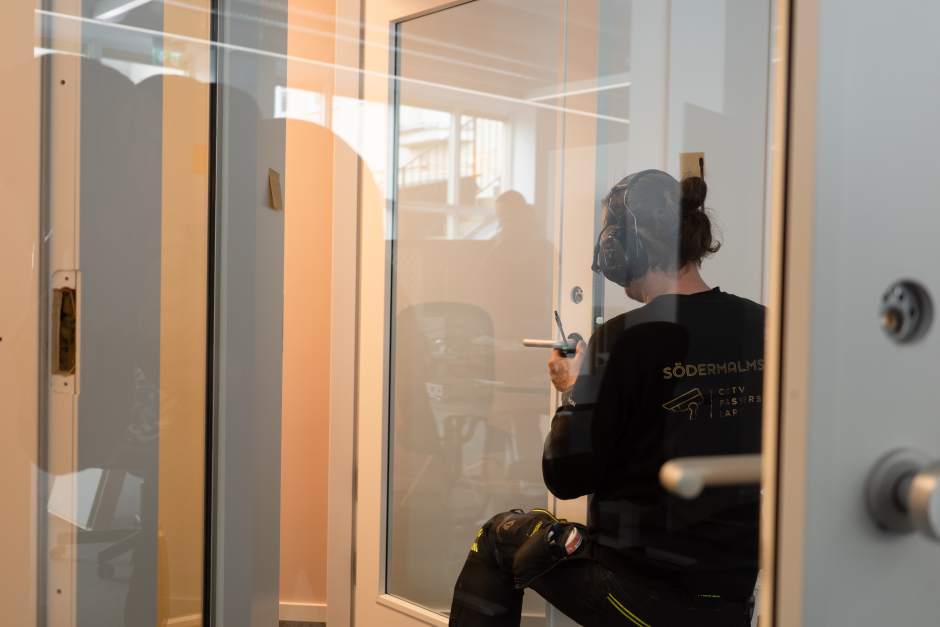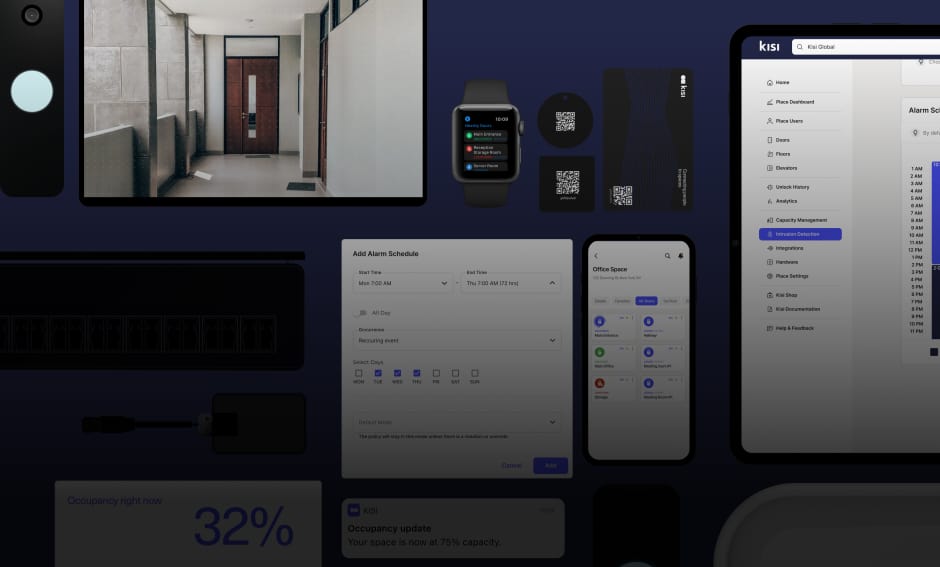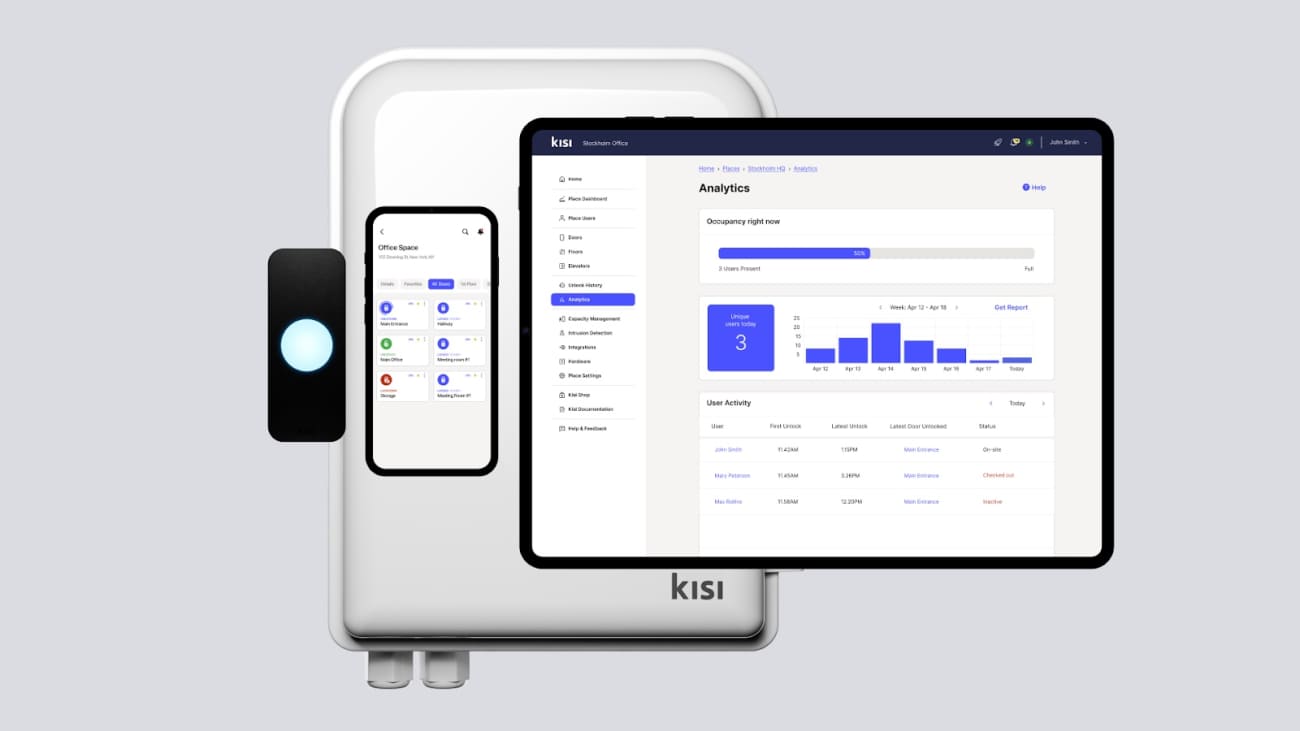Physical and cyber security are crucial for any organization that wants to protect its employees, finances, and reputation. A strong security system can significantly reduce the chances of an incident or breach, but finding the right solutions is only one part of the process. Putting those pieces together is often just as important, and that’s why a security integrator is such a valuable asset to your business.
Security systems integrators create a unified, efficient solution that protects every aspect of your property by connecting all the disparate elements—from your tried-and-true surveillance cameras to your cutting-edge access control system. In this article, we’ll explore exactly what security integrators do, how they can benefit your business, and what you should look for when selecting one.
What are security integrators? #
Security integrators are trained professionals who help businesses and organizations create cohesive security systems with different hardware and software. They’re responsible for the initial implementation and ongoing maintenance of integrated systems.
What security system integrators do #
When you hire a security integrator, they’ll review your security, property access, and utility systems. Depending on your existing set-up, they may install and calibrate new devices, wiring, and software. In some cases, they’ll upgrade your current system, streamlining it and making it more user-friendly.
The primary goal of a security solutions integrator is to eliminate redundancies and inconsistencies that make your system less efficient and effective. Some systems are built and installed without prioritizing connectivity and integration. An integrator will find ways to bring these various systems together and make your property more secure.

The difference between integrator and installer #
Although they both provide security services, system installers and integrators have separate roles. Integration is generally a lengthier and more involved process than installation. While an installer might visit your site for a day or two to put your equipment into place, an integrator may interact with your system on multiple occasions. For example, if you decide to add a new type of electronic lock, the integrator will help you choose the right solution and add it to your system in a way that optimizes performance and communication with the other components.
Another key distinction between integrators and installers is that the integration process doesn’t always involve new equipment or software. The main focus of a security installer is setting up some kind of technology, such as cameras, intercoms, or access control panels, that you weren’t previously using. Integrators, on the other hand, sometimes work with systems that are already in place. Rather than (or in addition to) performing the initial installation, they might connect, calibrate, and optimize your existing systems to achieve better results.
The scope of an integrator’s knowledge may also differ from that of an installer. Many integrators are experienced in both physical and cyber security while installation professionals are often only qualified to work in one area or the other. As a result, integrators can assist businesses with not only their hardware and software but also with their overall approach to security, including structuring their departments and developing policies.
Types of security systems managed by integrators #
A qualified security system integrator can work with a wide range of solutions, including physical security systems, cyber security systems, and combined systems. These are some of the elements of your property they may be able to manage and integrate:
- Access control systems
- Smart locks
- Intercoms
- Video surveillance
- Lighting systems
- Alarms
- HVAC
- Temperature controls
Integrators can not only set up and maintain these individual systems but also connect them. For example, you might ask your security system integrator to link access control points or set up the lighting to activate when someone unlocks a door and enters the building.

Advantages and challenges of hiring security integrators #
Hiring a security integrator has the potential to significantly improve your security system performance. However, it’s important to fully understand how this kind of partnership could affect your business.
Benefits #
A security integrator can strengthen your security and your business as a whole. Some of the biggest upsides of hiring one include:
- Increasing security: First and foremost, a cohesive security system can improve the level of security on your property. An integrator can identify gaps in your system and help you find solutions to close them, ensuring your business is protected from every angle.
- Simplifying security procedures: Traditional and legacy systems are often separate with one specific purpose, and their management might be divided across multiple departments. An integrator pulls together these disparate systems, simplifying your security management and enabling more informed operational decisions.
- Saving time: Understanding and managing multiple systems consumes a lot of time and effort. An integrated system can save hours of training, management, and troubleshooting.
- Managing costs: Integrated security systems can increase energy efficiency by shutting off systems like lighting and air conditioning when no one is present. Security integrators also know how to bring together your existing equipment, cutting back on the need to purchase replacements or new solutions.
- Providing training: To ensure that your team is ready to hit the ground running, many security integrators offer training. During a training session, they will explain how the system works and address employee concerns and questions.
- Enhancing property appeal: For building owners, an integrated, easy-to-use security system offers a great perk that can attract new tenants. A strong security system can also make a property more appealing by reducing the risk of property crime.
These advantages make your business better prepared to face both current and future security threats. With the assistance of a trained integrator, you can create an adaptable system that aligns with your specific needs and priorities.
Concerns #
While there are many positive outcomes that security integrators bring to the table, there are also some potential problems to keep in mind. For many organizations, particularly small and medium-sized businesses, the biggest drawback is cost. A security solutions integrator is generally an ongoing expense, and skilled professionals may charge high fees. However, considering that the average physical security breach costs around $100,000, a security integrator or a unified security platform may be a worthwhile investment.
The integration process also takes time. Unlike a straightforward hardware installation, integration requires an evaluation of all your security equipment and software. As a result, it may take longer to fully implement your system.
Finally, some organizations worry that they’ll be too dependent on a security systems integrator and will struggle to operate their systems on their own. While it’s true that an integrator will know the ins and outs of your system, most want to empower organizations to manage their own security solutions and seek help only when a serious problem arises.
How to choose the right security integrator #
Security integration is a growing field, so you’ll probably have a lot of prospective providers to consider. Because this is likely an ongoing partnership, it’s important to do some research before committing. These are some of the most important factors to think about when evaluating your options.
Knowledge and experience #
Perhaps the most important criterion to consider is a security integrator’s skill level. An inexperienced integrator could cause more harm than good, creating flaws in your system that might put your building and employees at risk.
Look for an integrator with a combination of cyber security and physical security experience. Make sure they’re up-to-date on technology developments, such as mobile access control and cloud-based security, to ensure that they can provide you with a future-proof system.
You can also learn more about an integrator’s knowledge and training by asking them what certifications they’ve received. A certification demonstrates that they’re committed to continuously improving their skill sets. Some of the organizations that offer relevant certifications include:
- Security Industry Association (SIA)
- Center for Development of Security Excellence (CDSE)
- Electronics Technicians Association (ETA)
- Electronic Security Association
- ASIS International
If you’re looking for an integrator to work with a system that’s already installed, it’s also a good idea to ask questions about their experience level with those specific solutions.
Partnerships #
Security integrators who have strong relationships with vendors can help you find the best possible products for your property. They may also be able to leverage those connections to get fairer prices and higher-quality service. In addition, an integrator with a strong professional network is likely well-informed about different product options and can often provide you with faster service.

Past performance #
If an integrator has a poor or nonexistent track record with previous clients, that’s a sign that you should find help elsewhere. Check into their reputation by looking for online reviews and case studies on their website. Look for statements that speak directly to their knowledge and experience. You can also ask other companies with impressive security systems to provide a referral for the integrator that they use.
Find the right security integrator with Kisi #
According to a recent study, 69% of decision makers are increasing their focus on security, particularly in light of technological developments like artificial intelligence (AI). Buying the latest and greatest hardware is one way to address your security concerns, but that alone may not fully protect your business. A security system integrator can offer insights into your system and restructure or enhance it for improved performance.
Finding the right security solutions integrator can be challenging, especially if you’ve never worked with this type of professional in the past. If you’re struggling to choose an integrator for your organization, reach out to Kisi. With our large network of Kisi resellers and integrators, we can not only help you choose a provider but also decide whether you really need one or can take full advantage of the Kisi One Security Platform. Contact our security experts to learn more.






